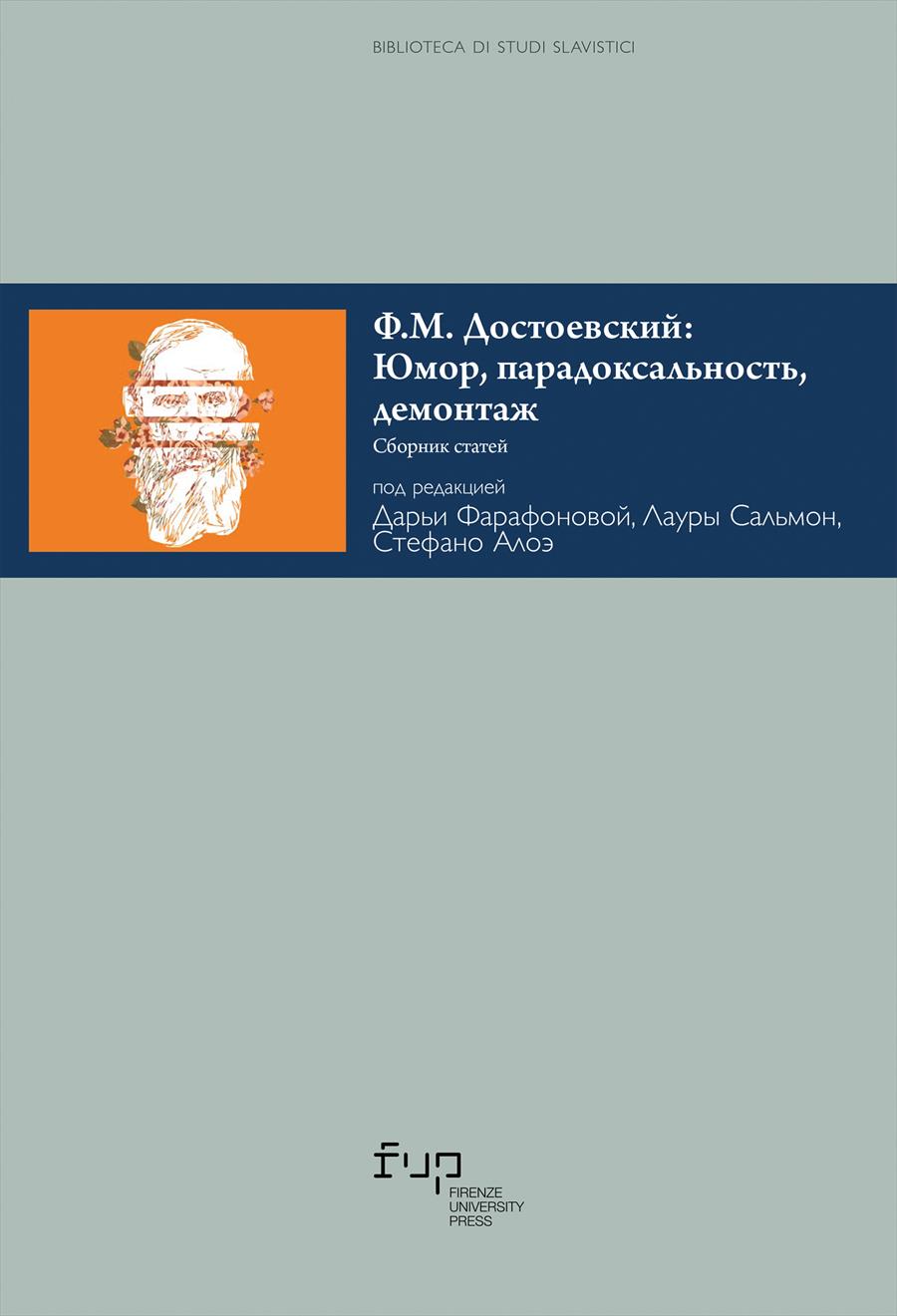- Ф.М. Достоевский: Юмор, парадоксальность, демонтаж
- A cura di Dar'ja Farafonova, Laura Salmon, Stefano Aloe
Нелепые отцы в художественном мире Ф.М. Достоевского
- Christoph Garstka
- © 2023 Author(s) |
- CC BY 4.0
- DOI: 10.36253/979-12-215-0122-3.09
Funny Fathers. Types of the ridiculous old man in Dostoevsky’s novels. The first chapters from Dostoevsky’s novel Netochka Nezvanova deal with the fate and the peculiar story of life of the heroine’s stepfather. He is called Efimov and, being an alcoholic and overconfident, he plunges his family into misery. Therefore, he can be considered a prototype of ridiculous father figures occurring in the great novels (Marmeladov from Crime and Punishment, General Ivolgin from The Idiot and Stepan Trofimovič from The Demons). The article focuses on the determining character traits of these figures who embody the dramatic failure of the father generation. While characterising those laughable vecchi, special attention is given to the seemingly paradox criterium of the tragicomic, which finally results in questioning the tension between freedom and a predetermined fate.
- Keywords:
- Dostoevsky – Netochka Nezvanova – Tragicomic – Asthetic existence – Hybris,
Ruhr-University Bochum, Germany - ORCID: 0009-0004-9454-139X
- Bergson, Henri. (1900) 2011. Das Lachen: ein Essay über die Bedeutung des Komischen, übersetzt von Roswitha Plancherel-Walter. Hamburg: Felix Meiner.
- Garstka, Christoph. 1998. “Der «Lügengeneral» Iwolgin in Dostojewskijs Roman Der Idiot.” DOI: 10.11588/heidok.00006938
- Gibian, George. 1958. “The Grotesque in Dostoevsky.” Modern Fiction Studies 3/4: 262-70.
- Jung, Carl Gustav. 1944. Psychologie und Alchemie. Zürich: Rascher.
- Kaufmann, Walter. 1980. Tragödie und Philosophie. Tübingen: Mohr Siebeck.
- Maslow, Abraham H. 1966. The Psychology of Science: A Reconnaissance. New York: Harper Collins.
- Riehle, Wolfgang. 2002. “Zum Paradoxon bei Shakespeare.” In Das Paradox. Eine Herausforderung des abendländischen Denkens, Hg. Roland Hanbüchle und Paul Geyer, 335-52. Würzburg: Königshausen & Neumann.
- Weiss, Gabriele. 2005. “Distanzierung des Selbst und ästhetische Existenz.” In Erziehung – Bildung – Negativität, Hg. Dietrich Benner (Zeitschrift für Pädagogik 49), 77-87. Beltz: Weinheim.
- Zimmermann, Jörg. 2004. “Ästhetische Existenz. Wandel und Aktualität einer anthropologisch zentralen Kategorie.” In Ästhetik. Aufgabe(n) einer Wissenschaftsdisziplin, Hg. Karin Hirdina und Renate Reschke, 31-47. Freiburg: Rombach.
- Кьеркегор, Сёрен. 2011. Или – или. Фрагмент из жизни, в 2 ч. Пер. с датского, вступ. ст., коммент., примеч. Н. Исаевой и С. Исаева. Санкт-Петербург: Амфор.
- Кьеркегор, Сёрен. 2014. Болезнь к смерти. Пер. с датского, вступ. ст. и примеч. Н. Исаевой и С. Исаева. Москва: Академический проект.
Informazioni sul capitolo
Titolo del capitolo
Нелепые отцы в художественном мире Ф.М. Достоевского
Autori
Christoph Garstka
Lingua
Russian
DOI
10.36253/979-12-215-0122-3.09
Opera sottoposta a peer review
Anno di pubblicazione
2023
Copyright
© 2023 Author(s)
Licenza d'uso
Licenza dei metadati
Informazioni bibliografiche
Titolo del libro
Ф.М. Достоевский: Юмор, парадоксальность, демонтаж
Curatori
Dar'ja Farafonova, Laura Salmon, Stefano Aloe
Opera sottoposta a peer review
Numero di pagine
222
Anno di pubblicazione
2023
Copyright
© 2023 Author(s)
Licenza d'uso
Licenza dei metadati
Editore
Firenze University Press
DOI
10.36253/979-12-215-0122-3
ISBN Print
979-12-215-0121-6
eISBN (pdf)
979-12-215-0122-3
eISBN (epub)
979-12-215-0123-0
Collana
Biblioteca di Studi Slavistici
ISSN della collana
2612-7687
e-ISSN della collana
2612-7679
